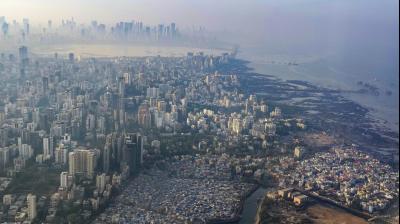1984 anti-Sikh riots: After 22 years, jail term of 70 accused upheld by Delhi HC
Of the remaining 19 people, 16 died during the pendency of their appeals against the trial court’s August 27, 1996 decision.
New Delhi: The Delhi high court on Wednesday upheld the conviction of 70 out of the 89 people who were awarded five-year jail term by a trial court for rioting, burning houses and violation of curfew during the 1984 anti-Sikh riots.
Of the remaining 19 people, 16 died during the pendency of their appeals against the trial court’s August 27, 1996 decision.
The appeals of the three others were dismissed after they absconded, the high court noted in its judgement.
Justice R.K. Gauba, while dismissing the 22-year-old appeals, asked the convicts to surrender forthwith to serve their remaining prison terms for rioting, looting and burning houses in various residential blocks in Trilokpuri between October 31 and November 3 in 1984 after the assassination of the then Prime Minister Indira Gandhi by her two Sikh bodyguards. Around 3,000 people died during the anti-Sikh riots.
The court noted that the 1984 anti-Sikh riots were a “dark chapter” in the history of independent India as the “law and order machinery had broken down”.
It said: “The police forces, and the civil administration, did not take timely or effective action to prevent the riotous conditions from spiralling out of hand. The criminal law process began, but hesitatingly and belatedly.
“The fact that these cases have continued to linger in the courts at the stage of trial or appeals or revisions till date itself is an indicator of the reality that the response of the law has been tardy, ineffective and highly unsatisfactory.”
The high court said that in view of the extensive damage that was caused by the appellants to a large number of houses or other properties of Sikh community by fire, the case merited punishment more severe than the one meted out by the trial court.
“Given the fact there is no appeal seeking enhancement of the punishment, the trial court having taken a lenient view, there is no occasion for this court to modify the order on sentence either way,” it said.
In its 79-page verdict upholding the conviction and jail term of the convicts, the high court said in the instant matter, the police did not promptly register the crimes and collect evidence and the other agencies, including the prosecution and the trial court, “failed to rise to the occasion”.
“...The manner in which the case was handled, or lingered, at the stage of committal proceedings before the Magistrate, was designed to ensure the case would not proceed with the promptitude it deserved,” the judge said.
The high court said the trial court’s order committing the case “lacked clarity” as to why no case for a graver offence, like murder, was made out as a large number of persons had died in the violence committed by the rioters.
Justice Gauba noted that of all the bodies recovered after the rioting, 22 remained unidentified and it was likely that no prosecution was initiated against anyone in respect of these deaths.
“In the foregoing facts and circumstances, this court directs the Commissioner of Police, Delhi to have the material, and the evidence, in above nature, re-examined by an appropriate agency for such further action under the criminal law as may be requisite,” the high court said. It also said that the evidence of the prosecution witnesses, “leaves no room for doubt that riots had broken out in various blocks of Trilokpuri, particularly affecting, very badly, Block no.32, right from the afternoon of October 31, 1984.”


















